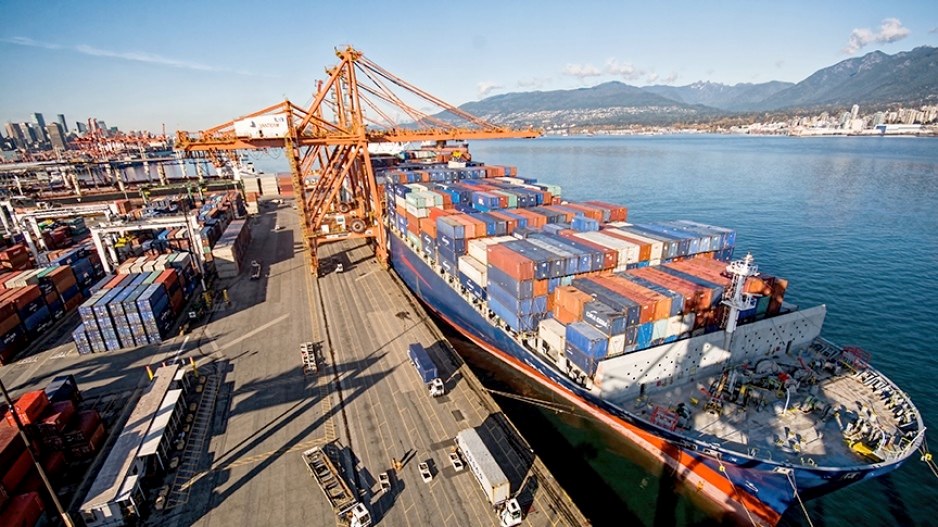No further talks are planned in contract talks for unionized longshoremen at Vancouver port facilities although a federal mediator remains engaged, the employer’s association said Monday (May 27).
The International Longshore and Warehouse Union (ILWU) Canada was ready for a full walkout at 7 a.m. Monday but instead issued a release saying members would begin "limited and targeted job action” with no picket lines at Global Container Terminals’ GCT Vanterm and GCT Deltaport facilities in the Vancouver area.
B.C. Maritime Employers Association president Jeff Scott said that limited action was initially an overtime ban but has become slowdowns in work such as vehicle movements or the fuelling of vehicles.
“It’s just small things in the overall operation,” Scott said. “Small things that add up to a big thing.”
ILWU members voted 98.4% in favour of striking against B.C. Maritime Employers Association members several weeks ago.
The previous eight-year deal between the two sides expired in March 2018 but contract negotiations have continued into 2019 and were continuing into the weekend.
The employers' association comprises 55 ship owners and agents, stevedores, container, bulk and break terminal operators in ports from Victoria to the Alaska border.
Talks broke off Sunday, both sides said.
ILWU president Rob Ashton has said the goal is to keep ports open as a new contract is pursued. The previous eight-year deal between the two sides expired in March 2018.
Ashton could not be reached for further comment.
The Port of Vancouver saw a nine-day lockout in 1999, a one-day strike in 1998 and another strike in 1995. In 2005, truckers withdrew services for six weeks.
Cargo handled via Canada’s West Coast ports grew faster than it did through their American cousins between 2017 and 2018.
Vancouver realized a 3% increase in the number of 20-foot-equivalent units (TEUs) moved through its facilities in 2018: 3,396,449 compared with 3,252,220 in 2017.
Total tonnage was up 3.5% to 147 million metric tonnes (MMT) from 142 MMT. Between 2016 and 2017, TEUs rose 11% and tonnage increased 5%.
Prince Rupert’s container cargo jumped 12% to 1,036,009 TEUs last year from 926,539 in 2017.
All other Prince Rupert terminals combined realized a 10% increase, with 26.67 MMT moved compared with 24.17 MMT in 2017.
When a labour dispute disrupted U.S. West Coast ports three years ago, those ports saw some departures of cargos to other ports – including Vancouver and Prince Rupert.
That dispute wound up in July 2017 when the U.S. ILWU signed a three-year extension of its contract with the Pacific Maritime Association.



